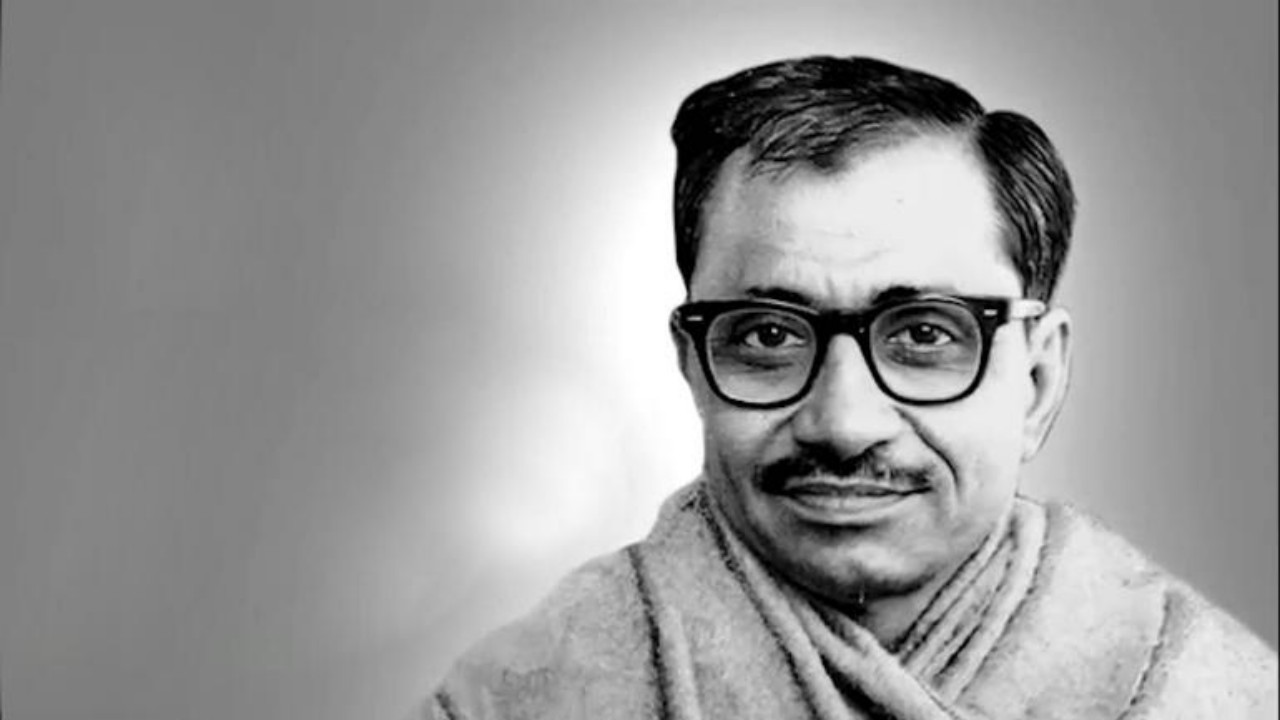Deendayal Upadhyaya death anniversary: Deendayal Upadhyaya was an Indian politician, proponent of Hindutva ideology espoused by the Rashtriya Swayamsevak Sangh (RSS), and leader of the political party Bharatiya Jana Sangh (BJS), the forerunner of Bharatiya Janata Party (BJP).
Upadhyaya started the monthly publication Rashtra Dharma, broadly meaning ‘National Duty’, in the 1940s to spread the ideology of Hindutva nationalism.
Upadhyaya is known for drafting Jan Sangh’s official political doctrine, Integral humanism, by including some cultural-nationalism values and selectively appropriating few Gandhian socialist principles such as sarvodaya (progress of all) and swadeshi (self-sufficiency).
His early life:
He was brought up by his maternal uncle. His education, under the guardianship of his maternal uncle and aunt, saw him attend high school in Sikar.
The Maharaja of Sikar gave him a gold medal, Rs 250 to buy books and a monthly scholarship of Rs 10. and did his Intermediate in Pilani, Rajasthan.
He took a BA degree at the Sanatan Dharma College, Kanpur. In 1939 he moved over to Agra and joined St. John’s College, Agra to pursue a master’s degree in English literature but could not continue his studies.
He did not take up his MA exams due to some family and financial issues.
He also came to be known as Panditji for appearing in the civil services examination, wearing the traditional Indian dhoti-kurta and cap.
His Legacy:
According to his supporters, he worked to decolonise Indian political thought, and even a veteran Congressman of Uttar Pradesh, Sampoornanand, wrote in the preface of Upadhyaya’s Political Dairy, describing him as “one of the most notable political leaders of our time”.
Another move considered important in the 1960s anti-Congress campaign, involved Deen dayal getting together with Ram Manohar Lohia to issue a Lohia-Deendayal joint statement in May 1964 envisioning a framework for a common program.
Since 2016 the BJP government under Prime Minister Narendra Modi named several public institutions after him.
In Delhi, a road/marg has been named after Upadhyaya. In August 2017, the BJP state government in UP proposed renaming Mughalsarai station in honor of Upadhyaya as his dead body was found near it.
Opposition parties protested this move in the Parliament of India. The Samajwadi Party protested with a statement that the station was being renamed after someone “who had made “no contribution to the freedom struggle”.
The Deen Dayal Research Institute deals with queries on Upadhyaya and his works.
In 2018 a newly constructed cable-stayed bridge in Surat was named Pandit Dindayal Upadhyay Bridge in honor of him.
On 16 February 2020 in Varanasi, Narendra Modi opened the Pandit Deendayal Upadhyaya Memorial Center and unveiled a 63-foot statue of Upadhyaya, his tallest statue in the country.
















